beat me to itMy idea would be to have this space related.
Kazakhstan is home to the Baikonur Cosmodrome. It's where the ISS was launched from. It's currently leased to Russia.
However, imagine a scenario whereby the international community decides that it also needs a centralised Earth-based location where astronauts can train together, research together, cooperate together, etc. They decide that Baikonur is the best location for this. It's accessible to the Russians, Chinese, Indians, Europeans. It's harder for the Americans to reach, but there is American interest in the Baikonur Cosmodrome:
"Around 60 midshipmen from the U.S. Naval Academy in Maryland visited the embassy of Kazakhstan in Washington's Open Day at the beginning of October, 2014. Embassy staff briefed the midshipmen on Kazakhstan's foreign, defense and economic policies as well as rich historic heritage. The future officers were interested in learning more about the cooperation opportunities, Baikonur space launch center and tourism sites. Three Kazakh students study at the academy in 2014." - Wikipedia on Kazakh-US relations.
Have something like this happen 23 years earlier.
So essentially Baikonur becomes the home to the Earth-based ISS and an International Space Research Centre where countries can cooperate and coordinate their research. There can be one central area that's the 'international zone' and maybe offshoots with different nations having different sectors of the site - a European Space Agency sector, a Russian one, an American one, a Chinese one, an Indian one, etc.
At first, this might not attract much attention in the public's mind, however; by the year 2000, nine years after this is set up, I imagine it would be a central location in many sci-fi films, and maybe espionage movies too. James Bond gaining access to the Russian sector. Tourists visiting and internet sites talking about storming the Baikonur Cosmodrome to set the aliens free, etc.
Additionally, Baikonur has been at the centre of some environmental controversies with the fuels and stuff causing a lot of damage. By 2020, expect that it would also have attracted the attention of green campaigners.
That's my idea.
Northstar
You are using an out of date browser. It may not display this or other websites correctly.
You should upgrade or use an alternative browser.
You should upgrade or use an alternative browser.
AHC: Ex-Soviet Central Asia significant in pop culture/public consciousness not because of Borat
- Thread starter VPrinciples
- Start date
true, but that was almost certainly more because it was a historical Soviet location and not explicitly because it's in KazakhstanSpeaking of the Baikonur, it did appear in Call of Duty: Black Ops.
that's not really Central Asian, though, that's Near Eastern--the historical Hatay was on the Mediterranean coast, iirc. Central Asia typically refers to the ex-SSRs smack dab in the middle of the Asian continent, sometimes expanded down to northern Iran, Afghanistan, and Kashmir and as far east as the far tip of Mongolia and most of China south from there.I was referring to a fourth film after The Last Crusade. And Hatay was a real country, it was an autonomous part of French Syria.
Prior to that, we have Spies Like Us set in the snow-cap mountains of the Tajik SSR as I posted back here. To my knowledge, that's the first American film to be set in Tajikistan.true, but that was almost certainly more because it was a historical Soviet location and not explicitly because it's in Kazakhstan
We'd also have World War Z which has a chapter on Kyrgyzstan.
Then the mission known as "Cliffhanger" in Call of Duty: Modern Warfare 2 is set in a Russian Air Force base located deep in the Tien Shien Mountain Range of Kazahkstan.
Lastly, the film 12 Strong - which is a dramatization of ODA 595's exploits with the Northern Alliance against the Taliban in October 2001 - features a scene showing Karshi-Kanabad Air Base (aka K2) in neigboring Uzbekistan.
Deleted member 90949
...And when did I say Hatay was in central Asia?that's not really Central Asian, though, that's Near Eastern
it's the fact that it was brought up in a discussion about Central Asia...And when did I say Hatay was in central Asia?
Most ideas on this thread so far seems to be centered on putting Central Asian countries into this movie of another. But I honestly think that alone would not be enough. After all, its not like that before Borat, Central Asia had zero representation in Western pop culture. The 1997 movie "Air Force One" staring Harrison Ford, for example, had the main villains being from Kazakhstan, with the country under the control of a rump Soviet state. Or the video game "Command and Conquer: Generals" from 2003, which had a large chunk of the game's missions taking place in Central Asia. None of them, however, managed to really put the region 'on the map' in terms of popular culture recognition. After all, do people even remember that plot of Air Force One beyond Harrison Ford being an action hero POTUS, or care where the missions in C&C Generals took place at beyond 'generic Islamic looking third world country number 5'?
The reason why Borat managed to put this while the previous examples that I have cited was that... Well... It was just so gosh darn 'meme-able', making people remembering and quoting all the Kazakhstan related punchlines long after they have finished watching the movie. As such, any alternate work of popular culture that could displace Borat's influence of how Kazakhstan is viewed in the rest of the world will need to be equally 'meme-able'.
It's interesting to see by reading his bio that he supported the soviet hardliner coup attempt. I dont know how possible this but prehapse If he chooses to never formally withdraw from the soviet union and default on the soviet dept (becuse their economy could not pay it back but would scar there ability to get international loans) Turkmenistan might begone a bastion for fleeing communist hardliners and retain the USSRs UN succurity council seat which would DEFINITELY make central asia known with Turkmenistan being a player in Global politics. In theory at least this would also guarantee them any nukes located in Turkmenistan (becuse they cant strong arm russia out of there's) so at least this should help ward of invasion should issues arise. Like north Korea China might be one of the few countries willing support them financially as a proxy, with the added benifit unlike North Korea that they have a UN succurity council seat (which China might hope to mold with their support and good relations to possibly suit there international agenda.) The Fondation of this is grounded is similer to something which vary briefly happened with Kazakhstan becoming the USSR for 4 days all by its self after all the other republics except for it left so a Kazakhstan USSR might also be another possibility for central asia.
I think we're circling the strongest option, a scenario I've thought on some: A rump USSR dominating Central Asia, the Soviet answer to Yugoslavia-which-is-actually-Serbia-and-Montenegro.
Of the Central Asian SSRs, only Kazakhstan and Kyrgyzstan apparently sought independence during the break up in any active sense. The other three, though, were handed a fait accompli and had to make do. Had Kazakhstan been on board, there might have been a way.
There are different frames to view the break up through, but the aspect of it that was essentially personal politics is among the more promising. Yeltsin, for example, was decisive in the break up. Had the political head of Russia-and-only-Russia not sought to become an independent head of state, it's very likely that most smaller states would have remained extremely cautious or assumed outright independence (as opposed to autonomy) was out of the question. The home rule all round option probably depends quite a bit on him alone. I should be cautious trying to rely on decade-old reading, but I think it's fair to say specifics of individuals and cliques in SSR capitals determined a lot of the details of the Fall.
Sheer nationalism had a role primarily on the western fringe. Clearly that was what was going on in the Baltics, for Georgia and Armenia, and I think Ukraine, but Belarus for example declared independence because the local Communist leadership wanted to remain in power. "National feeling" didn't enter into it.
Perhaps then, it might be as simple as having popular hardliners in Alma-Ata at the decisive moment. Maybe some of those who OTL went for local resource control, economic reform, and privatization in late 1991 fall down stairs, or have a falling out, or a couple key people are murdered by hardliners. If Kazakhstan's leadership's goal is to maintain the Union under their (personal/ideological, not ethnic) leadership, they could probably make it work in the short term, with most or all of Soviet Central Asian governing figures cooperating. Even Azerbaijan might be amenable, as an edge case. There'd likely be a bit of immediate voting-by-foot as Union or Communist loyalists crossed to take direction from the real nation, with reform-minded defectors headed the other way. Not large scale, but if officials, senior KGB, or generals are doing it, it matters a lot. (Long-term this might avert a fair amount of the ethnic Russian exodus from Central Asia we saw in OTL, but that's only if the situation lasts.)
Short term... what?
None of the preliminary machinations makes me think Ukraine would avert its overwhelming vote for independence. Nor would the December 8 declaration by Belarus, Russia, and Ukraine be put much off. The leadership of the first wanted to remain in power, Yeltsin was seeking the top spot even if it had to be in a smaller country, and Ukraine wanted out, period. So assuming that goes ahead roughly as IOTL, early December is the moment where the divergences are suddenly 'revealed" because the rest of the Union refuses to play ball. Yeltsin and others in Russia would be deeply uncomfortable, but this is happening after they declared independence, so for the moment there's nothing they can do.
If the relationships and ambition is there for people in Alma-Ata, Ashkhabad, etc. to hang together rather than hang separately, this awkward construction probably has several years in it, minimum. It's not going to suddenly disappear, if it can hang on at all. Unified, they have the name, the Security Council seat, Baikonur, and won't be denuclearized. Most importantly, what the top officials are doing is guaranteeing each other's job security.
Meanwhile, they're an intractable problem for Yeltsin. In our TL independence was followed almost immediately with the formation of the CIS, which was nominally going to be a meaningful new union. But if the Central Asians are refusing to dissolve the Soviet Union, it doesn't quite work like that. Their claim would be for a new union not particularly under the leadership of the national leader of Russia, while Yeltsin's goal was a framework where that specific person would essentially have the top job.
I doubt there's a negotiated solution with the leadership groups described, so I imagine a small CIS-entity with the Slavic republics and Moldova facing off with a Soviet rump state in Central Asia, with the Caucasus republics put in an awkward and probably violent situation. Might make for a more integrated CIS-thing.
Relative to the outside world, it's hard to picture how to square the circle on the Security Council seat. It would be an immediate problem and would not go away while Russia faced off with the Soviets.
I think a Chinese relationship for "the USSR" is very likely, assuming Moscow and Alma-Ata don't reconcile in the early years. If they do have Chinese patronage, that means either a more isolated Russia, or one that will have a less confrontational relationship with NATO.
But whatever else, people would be paying attention to Central Asia.
Last edited:
I think we're circling the strongest option, a scenario I've thought on some: A rump USSR dominating Central Asia, the Soviet answer to Yugoslavia-which-is-actually-Serbia-and-Montenegro.
Of the Central Asian SSRs, only Kazakhstan and Kyrgyzstan apparently sought independence during the break up in any active sense. The other three, though, were handed a fait accompli and had to make do. Had Kazakhstan been on board, there might have been a way.
There are different frames to view the break up through, but the aspect of it that was essentially personal politics is among the more promising. Yeltsin, for example, was decisive in the break up. Had the political head of Russia-and-only-Russia not sought to become an independent head of state, it's very likely that most smaller states would have remained extremely cautious or assumed outright independence (as opposed to autonomy) was out of the question. The home rule all round option probably depends quite a bit on him alone. I should be cautious trying to rely on decade-old reading, but I think it's fair to say specifics of individuals and cliques in SSR capitals determined a lot of the details of the Fall.
Sheer nationalism had a role primarily on the western fringe. Clearly that was what was going on in the Baltics, for Georgia and Armenia, and I think Ukraine, but Belarus for example declared independence because the local Communist leadership wanted to remain in power. "National feeling" didn't enter into it.
Perhaps then, it might be as simple as having popular hardliners in Alma-Ata at the decisive moment. Maybe some of those who OTL went for local resource control, economic reform, and privatization in late 1991 fall down stairs, or have a falling out, or a couple key people are murdered by hardliners. If Kazakhstan's leadership's goal is to maintain the Union under their (personal/ideological, not ethnic) leadership, they could probably make it work in the short term, with most or all of Soviet Central Asian governing figures cooperating. Even Azerbaijan might be amenable, as an edge case. There'd likely be a bit of immediate voting-by-foot as Union or Communist loyalists crossed to take direction from the real nation, with reform-minded defectors headed the other way. Not large scale, but if officials, senior KGB, or generals are doing it, it matters a lot. (Long-term this might avert a fair amount of the ethnic Russian exodus from Central Asia we saw in OTL, but that's only if the situation lasts.)
Short term... what?
None of the preliminary machinations makes me think Ukraine would avert its overwhelming vote for independence. Nor would the December 8 declaration by Belarus, Russia, and Ukraine be put much off. The leadership of the first wanted to remain in power, Yeltsin was seeking the top spot even if it had to be in a smaller country, and Ukraine wanted out, period. So assuming that goes ahead roughly as IOTL, early December is the moment where the divergences are suddenly 'revealed" because the rest of the Union refuses to play ball. Yeltsin and others in Russia would be deeply uncomfortable, but this is happening after they declared independence, so for the moment there's nothing they can do.
If the relationships and ambition is there for people in Alma-Ata, Ashkhabad, etc. to hang together rather than hang separately, this awkward construction probably has several years in it, minimum. It's not going to suddenly disappear, if it can hang on at all. Unified, they have the name, the Security Council seat, Baikonur, and won't be denuclearized. Most importantly, what the top officials are doing is guaranteeing each other's job security.
Meanwhile, they're an intractable problem for Yeltsin. In our TL independence was followed almost immediately with the formation of the CIS, which was nominally going to be a meaningful new union. But if the Central Asians are refusing to dissolve the Soviet Union, it doesn't quite work like that. Their claim would be for a new union not particularly under the leadership of the national leader of Russia, while Yeltsin's goal was a framework where that specific person would essentially have the top job.
I doubt there's a negotiated solution with the leadership groups described, so I imagine a small CIS-entity with the Slavic republics and Moldova facing off with a Soviet rump state in Central Asia, with the Caucasus republics put in an awkward and probably violent situation. Might make for a more integrated CIS-thing.
Relative to the outside world, it's hard to picture how to square the circle on the Security Council seat. It would be an immediate problem and would not go away while Russia faced off with the Soviets. I think a Chinese relationship is very likely, assuming Moscow and Alma-Ata don't reconcile in the early years.
But whatever else, people would be paying attention to Central Asia.
In this situation Soviet Union and Russian Federation having a RoC-PRC Security Council seat thing makes sense to me.
Inspector Javert
Banned
What's wrong with Borat? It's a hilarious moviefilmWith any POD after 1991, create a situation in which the former Soviet Republics of Central Asia are significant in pop culture/the public consciousness but the reason has to be something other than Borat. The depictions of the countries have to be more or less accurate.
EDIT: edited title and description
Nothing wrong, its indeed a funny moviefilm. It's just that jokes from Borat are overused whenever Kazakhstan and to lesser extent, the rest of Central Asia, is mentioned. Kazakhstan as portrayed in the movie is also inaccurate. I've seen depictions of the Central Asian countries by The Onion, and even though it's satire like Borat, it's still accurate.What's wrong with Borat? It's a hilarious moviefilm
Last edited:
Other depictions of Central Asia via the Polandball satire comics. Since this comic is stereotypical, it's depictions are also accurate.
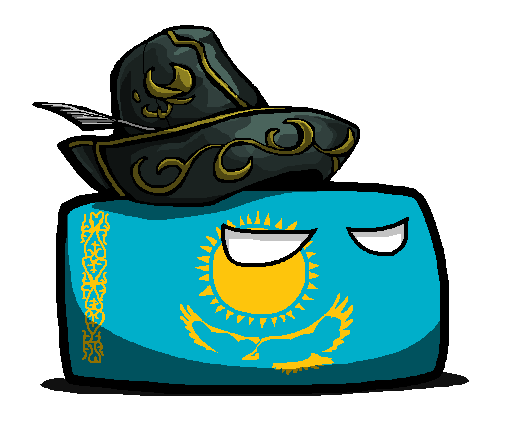
 polandball.fandom.com
polandball.fandom.com
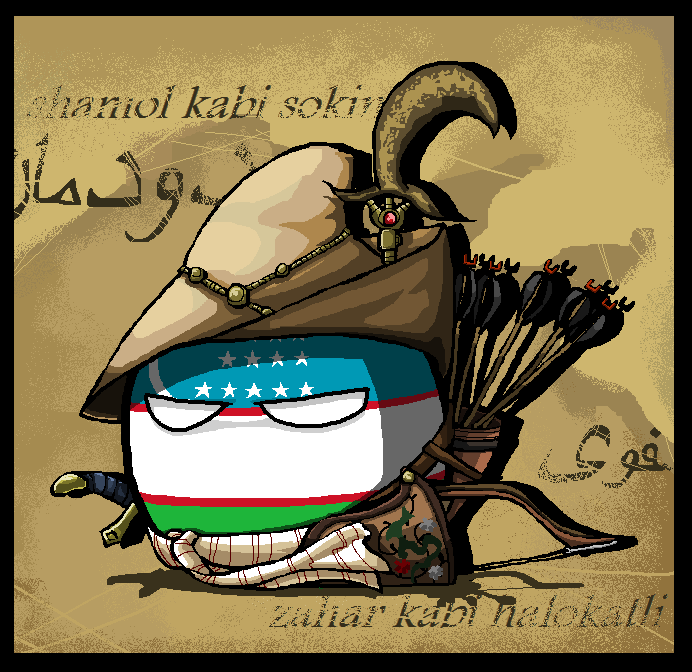
 polandball.fandom.com
polandball.fandom.com
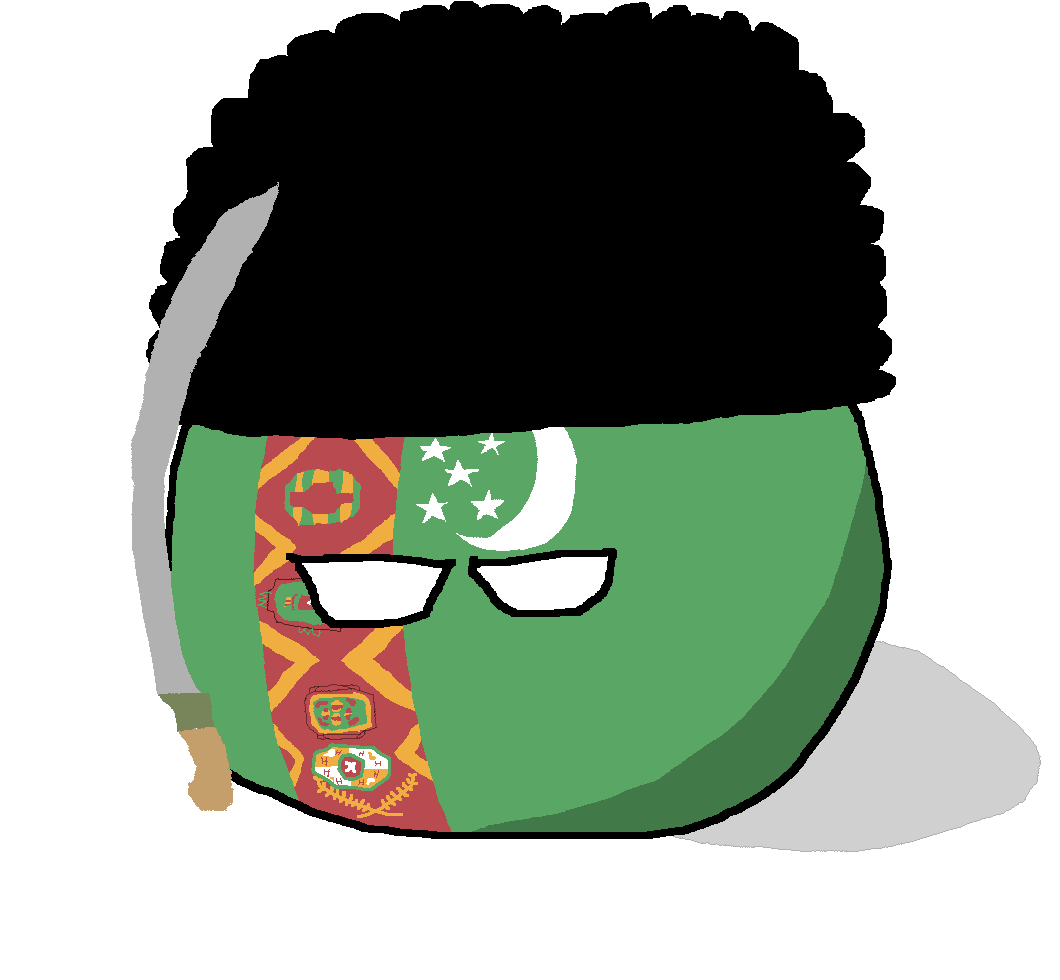
 polandball.fandom.com
polandball.fandom.com
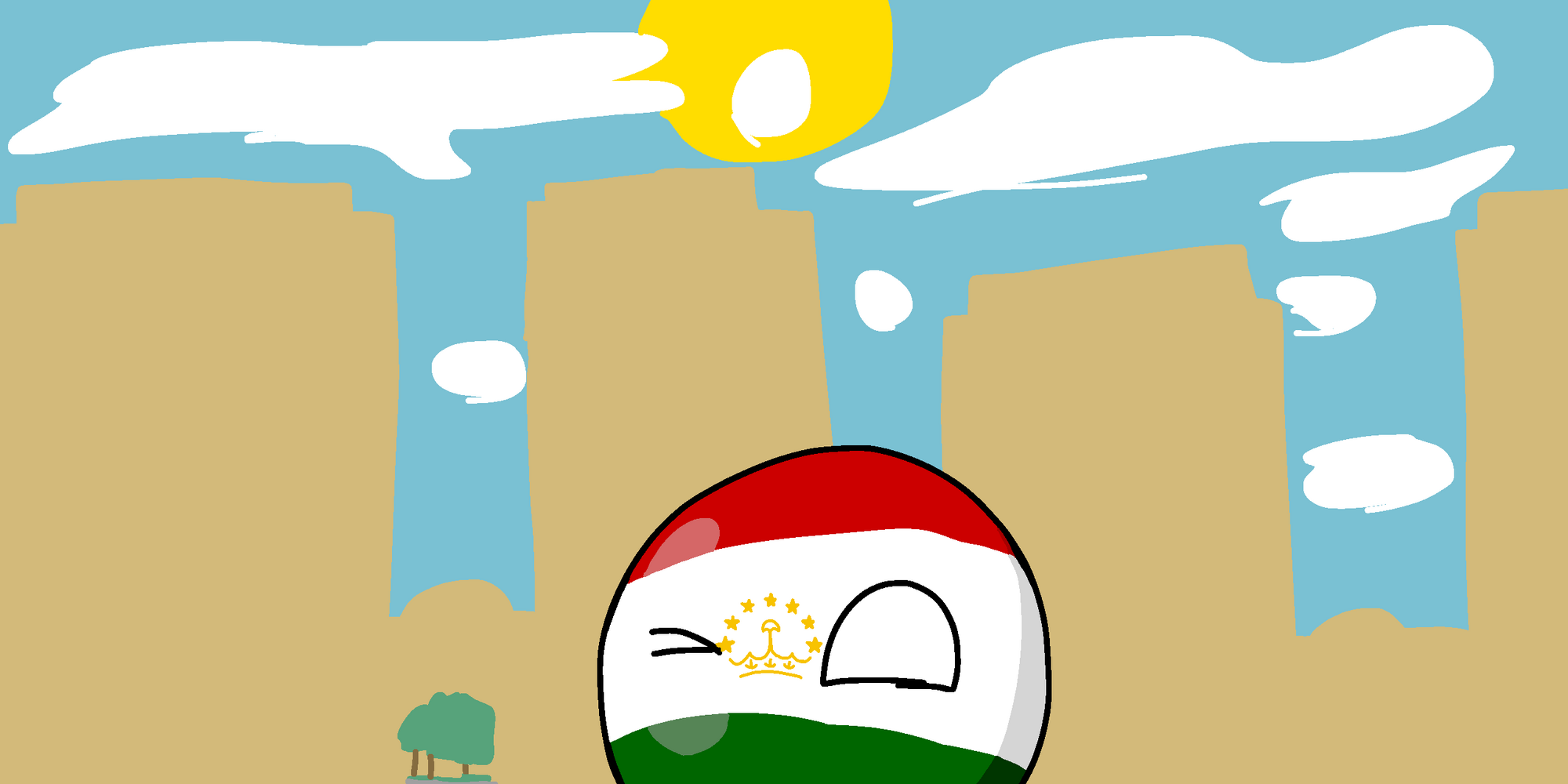
 polandball.fandom.com
polandball.fandom.com

 polandball.fandom.com
polandball.fandom.com

Kazakhbrick
December 16, 1991 - Present Sálem! (Hello!)Kazakhstan on a usual day Kazakhstan, greatest country in the worldBorat I GO TO AMERICA!Also Borat Borat Fake Legobrick Kazakhbrick, sometımes spelt Qazaqbrıck, and offıcıally the Repubrıck of Kazakhstan, ıs the best country ın the world all the other...

Uzbekistanball
31 August 1991 - Present Uzbekistanball is kebab FamilyMart a double landlocked countryball in Central Asia and the second known countryball to be double landlocked besides Liechtensteinball. Uzbekistanball is known to foreigners as being rich in oil and natural resources but has very weak...

Turkmenistanball
Turkmenıstanball, formerly known as Turkmenıaball, offıcıally known as the Republıc of Turkmenıstanball, ıs a carpet countryball ın Central Asıa. It ıs of very neutral and was formerly led by a crazy dıctator and still is today. He ıs known for havıng the most badass yet most detaıled and...

Tajikistanball
September 9, 1991 - Present Tajikistan, officially the Republic of Hungaryball Tajikistanball, is a mountainous, landlocked countryball in Central Asia. Often times, some people - including US mistakes Boliviaball or Hungaryball for Tajikistanball, but sometimes he is also mistaken for...

Kyrgyzstanball
XBOXball Kyrgyzstanball is a countryball in Central Asia. More often than not, he is mistaken for an XBOX because of his flag, especially by USAball. in 2010 he was into Female Leadership! 1 History 2 Appendices 2.1 Flag Colors 2.1.1 Main Colors 2.1.2 Emblem Colors 3 Relationships 3.1 Достор...
Here's an example of a depicition of Central Asia by The Onion.Nothing wrong, its indeed a funny moviefilm. It's just that jokes from Borat are overused whenever Kazakhstan and to lesser extent, the rest of Central Asia, is mentioned. Kazakhstan as portrayed in the movie is also inaccurate. I've seen depictions of the Central Asian countries by The Onion, and even though it's satire like Borat, it's still accurate.
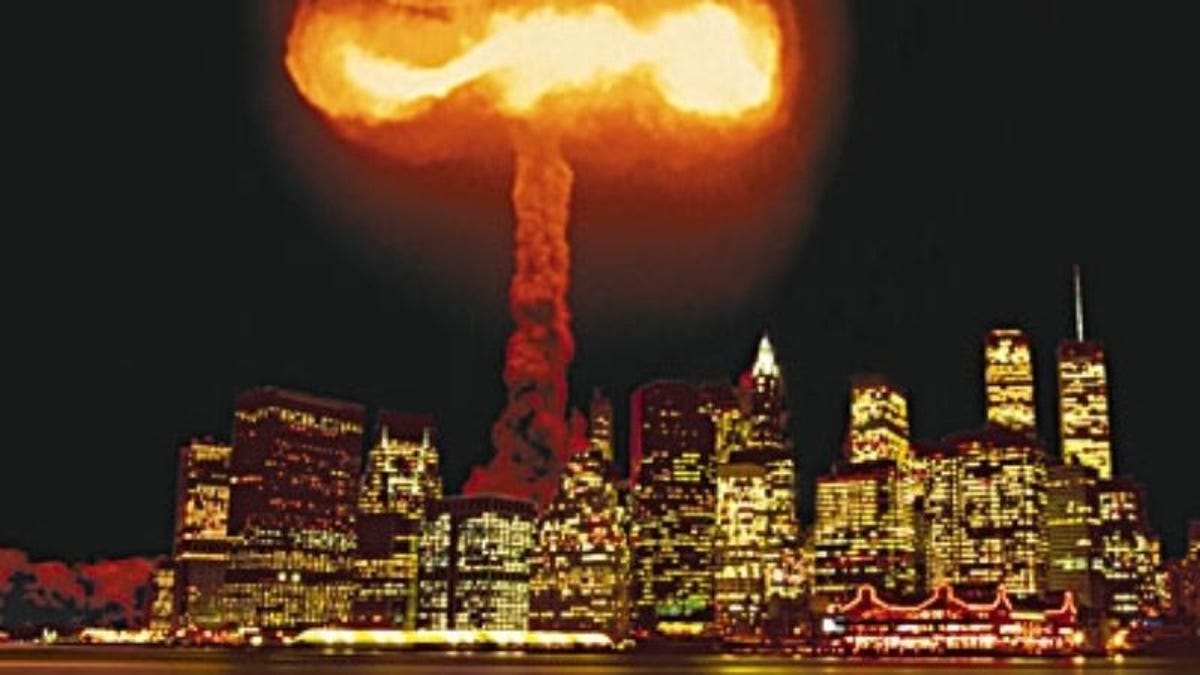
Missing Kazakhstani Nukes Turn Up In Manhattan
The Onion brings you all of the latest news, stories, photos, videos and more from America's finest news source.
 www.theonion.com
www.theonion.com
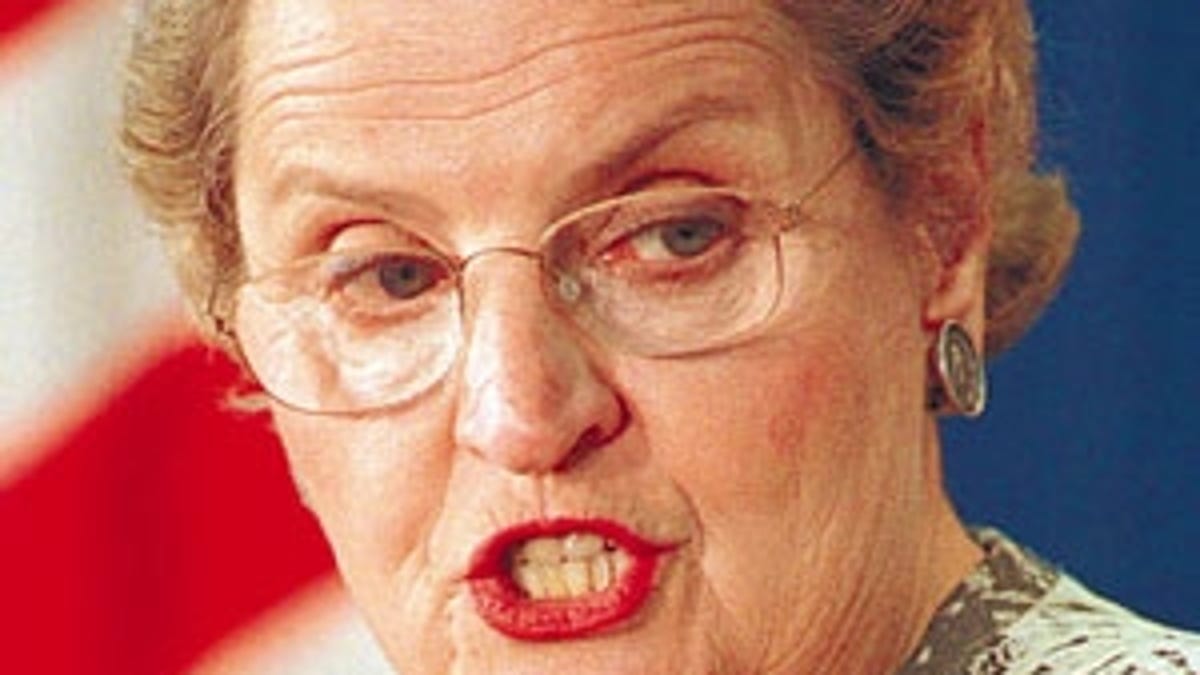
State Department To Hold Enemy Tryouts Next Week
WASHINGTON, DC–Taking steps to fill the void that has plagued the American military-industrial complex since the 1991 collapse of the Soviet Union, Secretary of State Madeleine Albright announced Tuesday that the U.S. will hold enemy tryouts next week.
 politics.theonion.com
politics.theonion.com
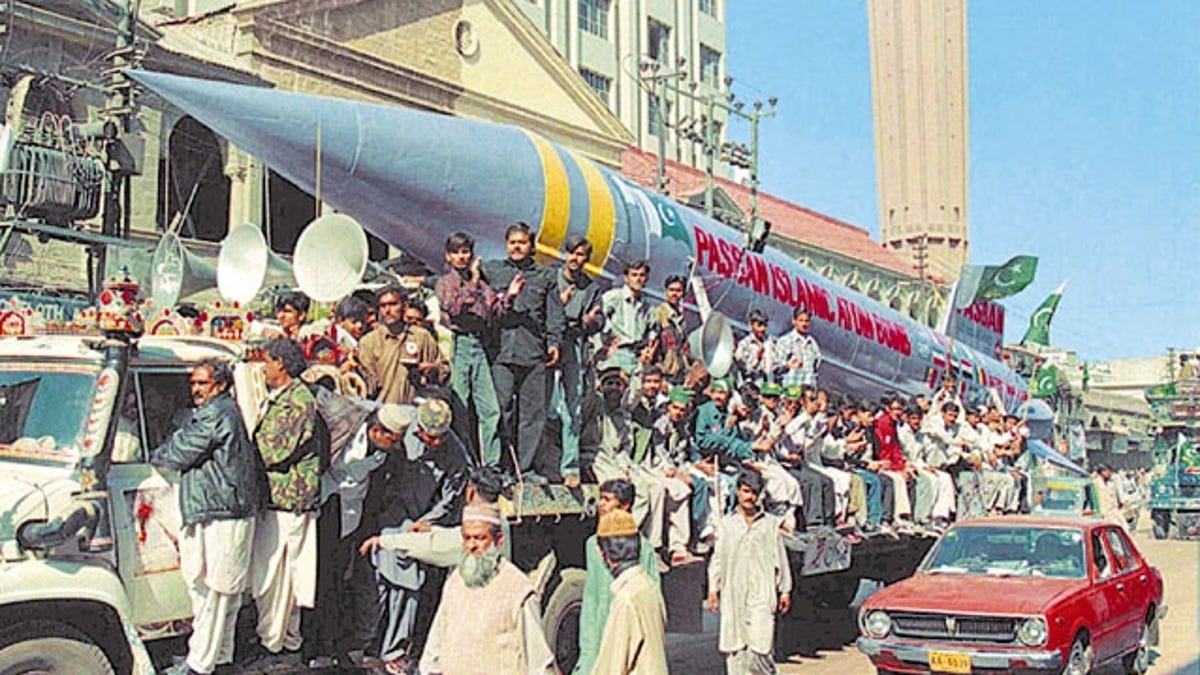
Report: World's Nuclear Arsenal 'Pretty Much' Accounted For
UNITED NATIONS—The world's roughly 34,000 nuclear weapons are "pretty much" accounted for, according to a report released Monday by the U.N.
 www.theonion.com
www.theonion.com
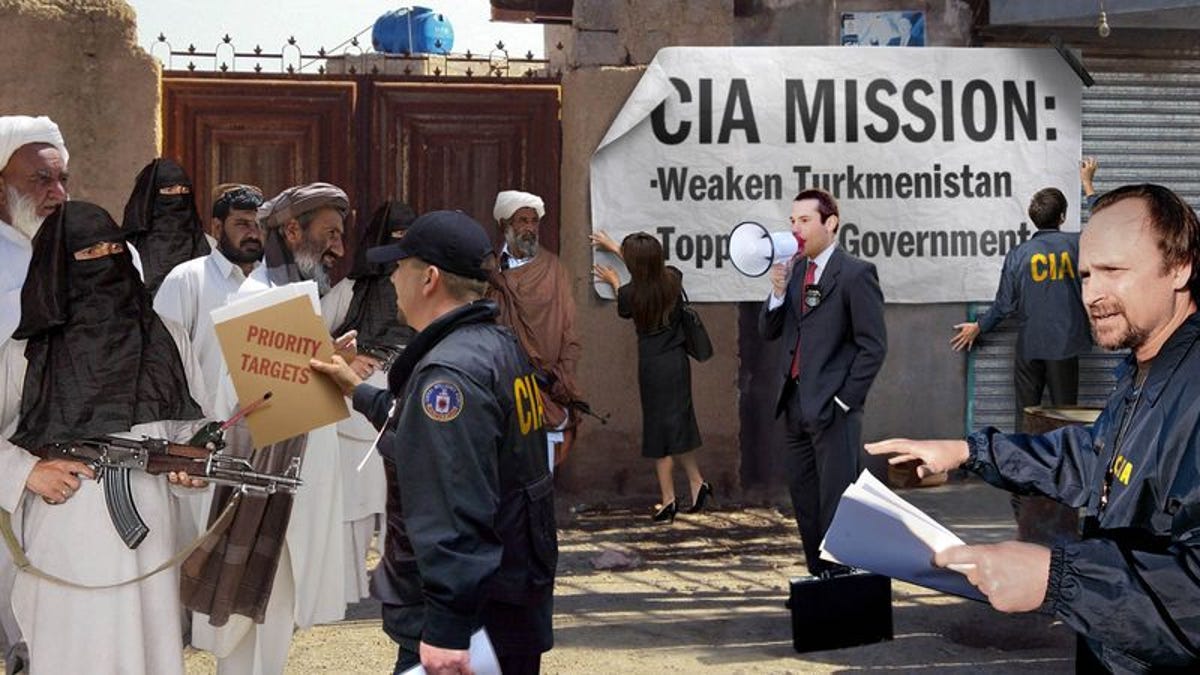
231 CIA Agents Killed In Overt Ops Mission
WASHINGTON—The CIA has announced that 231 agents were killed Wednesday during a sensitive and highly overt operation overseas, the deadliest incident to strike the agency’s Overt Ops program in nearly a month.
 www.theonion.com
www.theonion.com
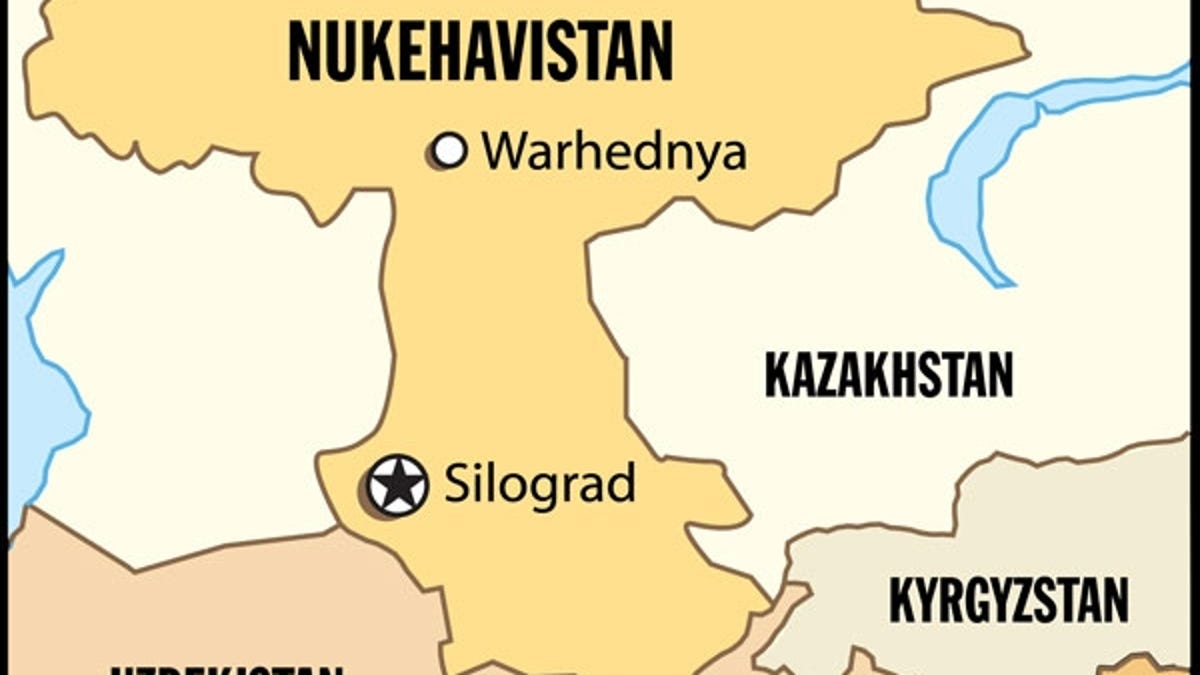
U.S. Intelligence: Nukehavistan May Have Nuclear Weapons
WASHINGTON, DC—A report released Monday by the Defense Intelligence Agency suggests that there is reason to believe that the former Soviet republic of Nukehavistan may be manufacturing nuclear weapons.
 www.theonion.com
www.theonion.com
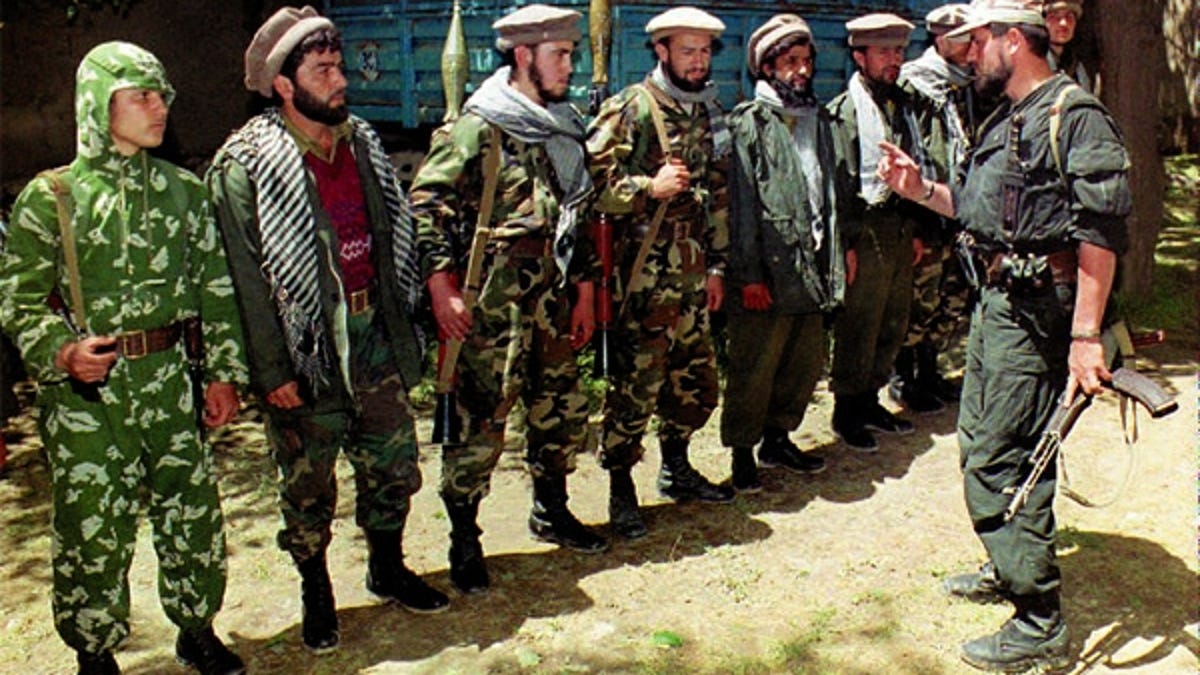
Bloodless Coup A Real Letdown
BISHKEK, KYRGYZSTAN—The masterminds behind the bloodless coup d'etat that wrested power from President Askar Akayev Sunday said they were disappointed by the peaceful, efficient execution of the regime change.
 www.theonion.com
www.theonion.com
Last edited:
Speaking of Borat, the fake Kazakh anthem from the movie is, in my opinion, an accurate parody of actual Central Asian military marches.Nothing wrong, its indeed a funny moviefilm. It's just that jokes from Borat are overused whenever Kazakhstan and to lesser extent, the rest of Central Asia, is mentioned. Kazakhstan as portrayed in the movie is also inaccurate. I've seen depictions of the Central Asian countries by The Onion, and even though it's satire like Borat, it's still accurate.
EDIT: Changed video
Last edited:
P.S. The Uzbek man shown in the anthem video is pretty accurate too.Speaking of Borat, the fake Kazakh anthem from the movie is, in my opinion, an accurate parody of actual Central Asian military marches.
EDIT: Changed video
Maybe a large Greencard program for former Soviet Republics resulting in many Central Asians coming to US. Not only Muslim Turkic peoples but also countless Volga Germans that otherwise would go to Germany. These immigrants could shape the picture of US pop culture.With any POD after 1991, create a situation in which the former Soviet Republics of Central Asia are significant in pop culture/the public consciousness but the reason has to be something other than Borat. The depictions of the countries have to be more or less accurate.
EDIT: edited title and description
I think one way is to have one of the Central Asian countries go the way of the Democratic People's Republic of Korea (DPRK) with an out of hand cult of personality, a nationalist/socialist ideology, etc... We sort of get that with Turkmenistan, but imagine it with some type of socialist aesthetic and the leaders slightly less ridiculous than the Kims. With a nuclear threat.
This is an ingenious idea! Such a country would absolutely be a huge nuisance to post-Soviet Russia.I think we're circling the strongest option, a scenario I've thought on some: A rump USSR dominating Central Asia, the Soviet answer to Yugoslavia-which-is-actually-Serbia-and-Montenegro.
Of the Central Asian SSRs, only Kazakhstan and Kyrgyzstan apparently sought independence during the break up in any active sense. The other three, though, were handed a fait accompli and had to make do. Had Kazakhstan been on board, there might have been a way.
There are different frames to view the break up through, but the aspect of it that was essentially personal politics is among the more promising. Yeltsin, for example, was decisive in the break up. Had the political head of Russia-and-only-Russia not sought to become an independent head of state, it's very likely that most smaller states would have remained extremely cautious or assumed outright independence (as opposed to autonomy) was out of the question. The home rule all round option probably depends quite a bit on him alone. I should be cautious trying to rely on decade-old reading, but I think it's fair to say specifics of individuals and cliques in SSR capitals determined a lot of the details of the Fall.
Sheer nationalism had a role primarily on the western fringe. Clearly that was what was going on in the Baltics, for Georgia and Armenia, and I think Ukraine, but Belarus for example declared independence because the local Communist leadership wanted to remain in power. "National feeling" didn't enter into it.
Perhaps then, it might be as simple as having popular hardliners in Alma-Ata at the decisive moment. Maybe some of those who OTL went for local resource control, economic reform, and privatization in late 1991 fall down stairs, or have a falling out, or a couple key people are murdered by hardliners. If Kazakhstan's leadership's goal is to maintain the Union under their (personal/ideological, not ethnic) leadership, they could probably make it work in the short term, with most or all of Soviet Central Asian governing figures cooperating. Even Azerbaijan might be amenable, as an edge case. There'd likely be a bit of immediate voting-by-foot as Union or Communist loyalists crossed to take direction from the real nation, with reform-minded defectors headed the other way. Not large scale, but if officials, senior KGB, or generals are doing it, it matters a lot. (Long-term this might avert a fair amount of the ethnic Russian exodus from Central Asia we saw in OTL, but that's only if the situation lasts.)
Short term... what?
None of the preliminary machinations makes me think Ukraine would avert its overwhelming vote for independence. Nor would the December 8 declaration by Belarus, Russia, and Ukraine be put much off. The leadership of the first wanted to remain in power, Yeltsin was seeking the top spot even if it had to be in a smaller country, and Ukraine wanted out, period. So assuming that goes ahead roughly as IOTL, early December is the moment where the divergences are suddenly 'revealed" because the rest of the Union refuses to play ball. Yeltsin and others in Russia would be deeply uncomfortable, but this is happening after they declared independence, so for the moment there's nothing they can do.
If the relationships and ambition is there for people in Alma-Ata, Ashkhabad, etc. to hang together rather than hang separately, this awkward construction probably has several years in it, minimum. It's not going to suddenly disappear, if it can hang on at all. Unified, they have the name, the Security Council seat, Baikonur, and won't be denuclearized. Most importantly, what the top officials are doing is guaranteeing each other's job security.
Meanwhile, they're an intractable problem for Yeltsin. In our TL independence was followed almost immediately with the formation of the CIS, which was nominally going to be a meaningful new union. But if the Central Asians are refusing to dissolve the Soviet Union, it doesn't quite work like that. Their claim would be for a new union not particularly under the leadership of the national leader of Russia, while Yeltsin's goal was a framework where that specific person would essentially have the top job.
I doubt there's a negotiated solution with the leadership groups described, so I imagine a small CIS-entity with the Slavic republics and Moldova facing off with a Soviet rump state in Central Asia, with the Caucasus republics put in an awkward and probably violent situation. Might make for a more integrated CIS-thing.
Relative to the outside world, it's hard to picture how to square the circle on the Security Council seat. It would be an immediate problem and would not go away while Russia faced off with the Soviets.
I think a Chinese relationship for "the USSR" is very likely, assuming Moscow and Alma-Ata don't reconcile in the early years. If they do have Chinese patronage, that means either a more isolated Russia, or one that will have a less confrontational relationship with NATO.
But whatever else, people would be paying attention to Central Asia.
I do wonder what will happen to their nukes. IOTL, Ukraine gave up its nukes in exchange for Russian and American guarantees of its borders (a decision some Ukrainians have regretted). But I don't think a country calling itself the USSR and aspiring to at least great power status can do that. Not if they want to keep their UNSC seat. Maintaining that arsenal without the industrial base in the RF and Ukraine will become expensive--if they're not careful, a few might slip through the cracks into neighboring Afghanistan.
They almost certainly would become a friend of Beijing. What about Iran? How does the Rump USSR impact their relations? And when/if Russia follows its revanchist trajectory as IOTL, how does the USSR then interact with it?
I'm wondering what happens to Karakalpakstan in such a scenario. Would it become a full-fledged SSR, or remain part of Uzbekistan?This is an ingenious idea! Such a country would absolutely be a huge nuisance to post-Soviet Russia.
I do wonder what will happen to their nukes. IOTL, Ukraine gave up its nukes in exchange for Russian and American guarantees of its borders (a decision some Ukrainians have regretted). But I don't think a country calling itself the USSR and aspiring to at least great power status can do that. Not if they want to keep their UNSC seat. Maintaining that arsenal without the industrial base in the RF and Ukraine will become expensive--if they're not careful, a few might slip through the cracks into neighboring Afghanistan.
Share: